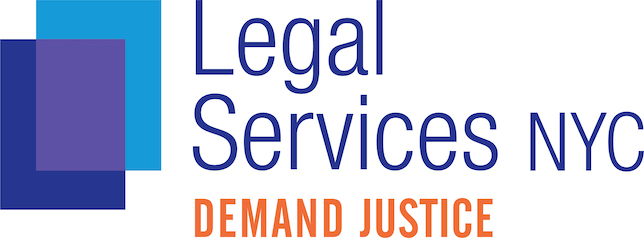In an April 23rd article, New America Media editor Khalil Abdullah speaks to South Brooklyn Legal Services' SSI and Disability Rights Director Johnson Tyler about the continuing problem of debt collectors who file claims on exempt accounts, which include Social Security and veterans' benefits.
Social Security, disability benefits, Veterans Benefits, pensions, child support, workers compensation, and unemployment insurance are exempt from collection by creditors and debt collectors. Until January 2009, a loophole in the law allowed banks to freeze accounts containing this exempt income, often with devastating consequences to individuals and families who depended on the funds for housing, food, and other basic living expenses. Those who had their accounts frozen carried the burden of proving that the funds should be exempt, a complicated task that could take weeks or even months. Meanwhile, late fees, overdraft fees, and bounced check fees piled up, making a bad situation even worse.
Legislation signed by Governor David Paterson last fall closed this loophole in New York State; however, in 60-year old Ronald Coote's case, the Exempt Income Protection Act did not apply because his collection agency attempted to seize his account prior to the bill's effective date of January 1, 2009.
Bank account freezes are designed to prevent account holders from withdrawing funds before creditors can collect on legal claims. Debt collectors, though, often file claims on exempt accounts.
"The freeze creates a hostage-like situation where the creditor can wait out the debtor by demanding payment,” said attorney Johnson Tyler, director of the Social Security/Consumer Rights Unit at South Brooklyn Legal Services.
Tyler explained that often consumers don’t know SSA funds are exempt and agree to make payments to have the freeze lifted, so they can access their accounts. He suggested the problem might be worse in communities where limited proficiency in English is common.
In 2002, Coote was a mid-level manager at a Western Beef grocery store in the Bronx, when his foot got caught in an uncovered drain at the facility. He fell, and the injury rendered him unable to work.
In addition to two herniated disks, tests confirmed arthritis in the lower part of his spine, a heart ailment, and other debilitating medical conditions. Then in his early 50s, Coote began receiving benefits in 2003. Friends and family members also helped at times.Taking money from loved ones, well, it doesn’t make me feel good,” Coote confided.
Last year, Coote complied with the debt collector’s request for three months of his bank statements to show that he was barely surviving financially with SSA funds and should be considered uncollectable. But the collection agency saw that he had deposited non-SSA money, modest personal gifts. The collector claimed Coote’s account was no longer exempt because it included “co-mingled funds.”
Coote contacted Tyler, who convinced the collection agency that, under the Social Security Act, his account could not be garnished. Because Coote had already spent the money by the time the bank had frozen the account, the claim of co-mingled funds was not valid, Tyler told the collection agency. He threatened to sue if the bank did not end the freeze.
‘Debt Collection on steroids’
Because of complications with bank account freezes, varying definitions of co-mingled accounts, or imprecise calculations of exempt funds, consumer rights advocates contend bank freezes and garnishments on accounts, such as Coote’s, are illegal. They argue that the freezes violate the intent and spirit of the federal law’s mandate to provide a floor above the poverty line for Americans.
Collection agencies use computer searches for debtors’ accounts as easily as commercial fishing crews use huge trawling nets to haul in a catch. Using a database and a keystroke, a collector can broadcast an electronic inquiry on a claim to every bank in a state.
“It’s debt collection on steroids,” said Tyler. “Computers are talking to computers.”
New York is one of only a handful of states that have taken action on this issue. A lack of federal regulation has resulted in what advocates call a "patchwork" of state legislation. Many are calling for a renewed effort to pass federal legislation protecting Social Security recipients from illegal garnishment and bank freezes.
Read the New America Media article in its entirety by clicking here.
Earlier: In a January 27th "Outside Counsel" feature in the New York Law Journal, Johnson Tyler wrote that New York's Exempt Income Protection Act can serve as a model for the rest of the country in eliminating conflicts between debt-collection procedures and federal and state exemption laws, protecting benefits for disabled, elderly and impoverished people.



